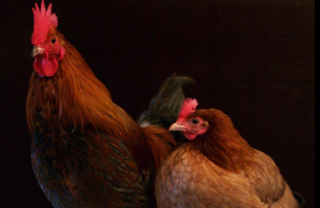Highly Pathogenic Avian Influenza in Atlantic Flyway

Backyard and commercial poultry owners advised to adopt strong biosecurity measures.
Highly Pathogenic Avian Influenza (HPAI) has been detected in migratory water birds in the Atlantic Flyway in Nova Scotia, Canada, South Carolina (SC), North Carolina (NC), Virginia (VA), and Florida (FL), Maryland (MD), and New Hampshire (NH). It has recently been found in a commercial turkey flock in Nova Scotia, Canada and in Indiana (IN). Commercial poultry, backyard poultry, and domestic waterfowl continue to be at risk of exposure to the virus due to its presence in migratory waterfowl. Infection within the wild bird population may contribute to introduction and spread of the disease to and among domestic birds.
The MDAR is advising backyard and commercial poultry owners to practice strong biosecurity measures to prevent domestic poultry from having contact with wild birds. Specifically for birds trying to attain or maintain “Organic” certification, this may mean temporarily confining the birds inside a shelter to prevent or minimize contact with wild birds, their feathers and droppings. This option continues to be possible under USDA CFR rule §205.239 Livestock living conditions, which states in part,
(b) The producer of an organic livestock operation may provide temporary confinement or shelter for an animal because of:
(3) Conditions under which the health, safety, or well-being of the animal could be jeopardized;
You may wish to discuss this provision with the appropriate authorities related to your organic status, as there does appear to be a disease risk for HPAI right now in Massachusetts, if poultry come into contact with wild birds.
This recommendation is in place for the next 90 days. This recommendation will be reviewed at the end of that time period to determine if an extension is warranted.
Should you notice unusual signs of sickness in your flock, you should immediately contact your local veterinarian, MDAR at 617-626-1795, or USDA at 508-363-2290.
Protect your flock with excellent biosecurity. Your veterinarian can assist you in developing additional biosecurity protocols for your operation. Other excellent biosecurity resources include: poultrybiosecurity.org and www.aphis.usda.gov/aphis/ourfocus/animalhealth/animal-disease-information/avian. You may also contact MDAR for assistance with any questions you may have. The office number is 617-626-1795.

